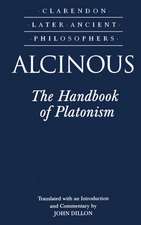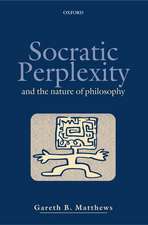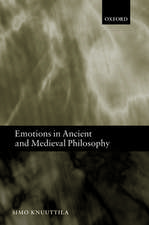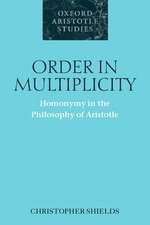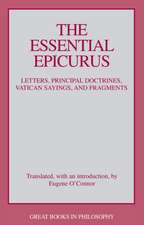Passions and Persuasion in Aristotle's Rhetoric: Oxford Aristotle Studies Series
Autor Jamie Dowen Limba Engleză Hardback – 9 apr 2015
Din seria Oxford Aristotle Studies Series
- 23%
 Preț: 467.33 lei
Preț: 467.33 lei - 17%
 Preț: 480.19 lei
Preț: 480.19 lei - 28%
 Preț: 473.83 lei
Preț: 473.83 lei - 18%
 Preț: 162.42 lei
Preț: 162.42 lei - 30%
 Preț: 676.73 lei
Preț: 676.73 lei - 21%
 Preț: 330.93 lei
Preț: 330.93 lei -
 Preț: 343.84 lei
Preț: 343.84 lei - 9%
 Preț: 310.91 lei
Preț: 310.91 lei - 34%
 Preț: 612.05 lei
Preț: 612.05 lei - 27%
 Preț: 357.85 lei
Preț: 357.85 lei - 14%
 Preț: 330.26 lei
Preț: 330.26 lei - 34%
 Preț: 848.46 lei
Preț: 848.46 lei - 23%
 Preț: 415.58 lei
Preț: 415.58 lei - 23%
 Preț: 453.14 lei
Preț: 453.14 lei - 34%
 Preț: 727.05 lei
Preț: 727.05 lei - 30%
 Preț: 645.14 lei
Preț: 645.14 lei - 30%
 Preț: 721.01 lei
Preț: 721.01 lei -
 Preț: 339.62 lei
Preț: 339.62 lei - 14%
 Preț: 256.29 lei
Preț: 256.29 lei - 30%
 Preț: 659.80 lei
Preț: 659.80 lei - 19%
 Preț: 247.07 lei
Preț: 247.07 lei - 28%
 Preț: 492.99 lei
Preț: 492.99 lei - 28%
 Preț: 455.83 lei
Preț: 455.83 lei
Preț: 466.88 lei
Preț vechi: 645.95 lei
-28% Nou
Puncte Express: 700
Preț estimativ în valută:
89.36€ • 92.94$ • 74.88£
89.36€ • 92.94$ • 74.88£
Carte tipărită la comandă
Livrare economică 03-08 martie
Preluare comenzi: 021 569.72.76
Specificații
ISBN-13: 9780198716266
ISBN-10: 0198716265
Pagini: 260
Dimensiuni: 146 x 220 x 21 mm
Greutate: 0.46 kg
Editura: OUP OXFORD
Colecția OUP Oxford
Seria Oxford Aristotle Studies Series
Locul publicării:Oxford, United Kingdom
ISBN-10: 0198716265
Pagini: 260
Dimensiuni: 146 x 220 x 21 mm
Greutate: 0.46 kg
Editura: OUP OXFORD
Colecția OUP Oxford
Seria Oxford Aristotle Studies Series
Locul publicării:Oxford, United Kingdom
Recenzii
Jamie Dow has produced a clearly written account of a central issue in Aristotle's Rhetoric, and has done so in a way that makes it almost impossible for the reader to get lost.
the book is a welcome contribution to the study of Aristotle, both for its contribution to the interpretation of the Rhetoric
the book is a welcome contribution to the study of Aristotle, both for its contribution to the interpretation of the Rhetoric
Notă biografică
Jamie Dow studied for his PhD at the University of St Andrews before coming to Leeds as a Lecturer in Ethics. His principal research interests are in ancient philosophy. His work tends to centre around philosophical issues related to human and animal psychology, especially the emotions, and to normative issues about persuasion. His articles have appeared in publications such as Oxford Studies in Ancient Philosophy and Phronesis.




